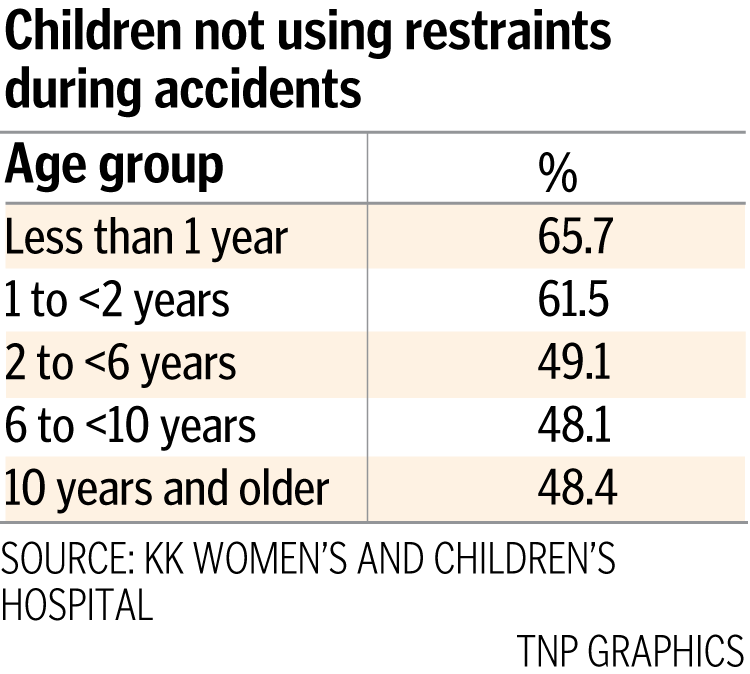Kids in cars: Are too many parents complacent about childrens' safety?
Complacency may be reason for not buckling up children who get hurt in traffic accidents: KKH study
More than half of children who were injured in traffic accidents were not properly buckled up in their vehicles, according to a study published by KK Women's and Children's Hospital (KKH) yesterday.
Infants under a year old made up the highest proportion of the figure, with 65.7 per cent not properly restrained at the time of the accident.
Out of the 350 children who were on a bicycle or motorcycle in an accident, 70 per cent were not using appropriate restraints or safety measures, like helmets or bicycle seats.
The study, which analysed road traffic related injuries attended to at KKH and the National University Hospital from January 2012 to April 2016, involved 2,468 infants and children up to the age of 16 who were seen within 24 hours of being injured.
It included infants and children on motor vehicles as well as pedestrians and cyclists involved in a crash with a motor vehicle.
In the study, published in Elsevier's Accident Analysis and Prevention journal in March, 590 children required hospitalisation, with a small proportion in critical condition and needing cardio-pulmonary resuscitation or surgery.
Six children died.
SURPRISING
The low rates of compliance is surprising, considering that child car restraints has been shown to reduce the incidence of death in infants by more than 70 per cent during road accidents, and by up to half in older children, according to studies by the Centres for Disease Control and Prevention.
Dr Chong Shu-Ling, the study's lead researcher, found that in comparison to other advanced countries, there was a substantial lack of compliance with the use of appropriate child seats and restraints for motor vehicles and two-wheelers in Singapore.
Dr Chong, a staff physician at KKH's department of emergency medicine, said: "What's even more worrisome is that the disregard for safety recommendations is seen beginning from early infancy."

The law requires passengers under 1.35m in motor vehicles to be secured with an appropriate child restraint or to use a booster seat or adjustable seat belt.
A possible reason for low adherence to seat restraints could be complacency, said Dr Chong.
Under the Road Traffic Act, drivers can be fined up to $1,000 or jailed up to three months for violating child restraint rules in motor vehicles.
Mr Bernard Tay, president of the Singapore Road Safety Council, called for "more education of parents, especially pregnant women" by hospitals, governments and car manufacturers to promote the use of child restraints in cars.
Mr Ang Hin Kee, deputy chairman of the Government Parliamentary Committee for Transport, emphasised that parents have a part to play in ensuring road safety for children.
"Ultimately, it is the role of the parents to ensure the appropriate safety measures are put in place," he said.
Get The New Paper on your phone with the free TNP app. Download from the Apple App Store or Google Play Store now


